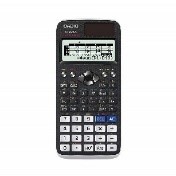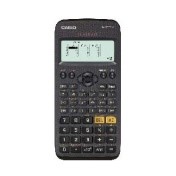Maths
TCA Department of Mathematics:
In this section, the Mathematics department provides an overview of the KS3, KS4 and KS5 curriculum and links resources to aid revision and support progress.
Department Contacts
| Staff | Role | |
|---|---|---|
| Mrs F Timothy-Nicholas | AP Assessment and Timetabling and Maths Teacher | Femila.TimothyNicholas@thomasclarksonacademy.org |
| Mrs K Gray-Hannah | Head of Maths and Maths Teacher | Karen.grayhannah@thomasclarksonacademy.org |
| Mrs N Clifton | KS3 Co-ordinator and Maths Teacher | Natalie.Clifton@thomasclarksonacademy.org |
| Mrs S Anderson | KS5 Co-ordinator and Maths Teacher | Samantha.Anderson@thomasclarksonacademy.org |
| Mrs R Morgan | Lead Practitioner for Primary Transition and Maths Teacher | Rachael.Morgan@thomasclarksonacademy.org |
| Mrs D Stevenson | KS4 Co-ordinator and Maths teacher |
Daniela.Stevenson@thomasclarksonacademy.org
|
| Mrs S Thomas | Professional tutor and Maths Teacher | Sarah.Thomas@thomasclarksonacademy.org |
| Miss A Rose | Maths Teacher | Anne.Rose@thomasclarksonacademy.org |
| Mr M Harrison | Maths Teacher | Michael.Harrison@thomasclarksonacademy.org |
| Mr P Chapman | Maths Teacher | Paul.Chapman@thomasclarksonacademy.org |
| Dr R Windsor | Maths Teacher | Rachael.Windsor@thomasclarksonacademy.org |
| Mrs C Da Rocha | Maths Teacher | Cindy.DaRocha@thomasclarksonacademy.org |
| Miss E Cross | Maths Teacher and RSL for Year 7 | Emily.Cross@thomasclarksonacademy.org |
| Mrs K Ray | Maths Teacher | Kathryn.Ray@thomasclarksonacademy.org |
| Mrs A Birch | Higher Level Teaching Assistant | Ashleigh.Birch@thomasclarksonacademy.org |
|
Mrs D Jose |
Maths Teacher |
Dhanya.Jose@thomasclarksonacademy.org |
| Miss P Mayberrie | Trainee Teacher | Priya.Mayberrie@thomasclarksonacademy.org |
TCA Department of Mathematics - Academic Statement & Department’s Vision
“Mathematics is the most beautiful and most powerful creation of the human spirit.”
- Stefan Banach
Mathematics is a creative and highly inter-connective discipline. Curious minds have been solving humanity’s biggest conundrums for centuries by harnessing the power of mathematics. The importance of mathematics can be seen in hidden ways, and in everyday usage, all around us: computers, airplanes, body scanners, software, coding, and much more.
We want our students to understand and embrace that it is a discipline developed over centuries and fundamentally about problem-solving, which is essential to everyday life. At TCA, we want our students to appreciate how critical this discipline is to so many other disciplines such as science, technology & engineering, geography, finance, expressive arts and employment. Finally, we want our students to understand and appreciate that Mathematics provides the foundation for understanding the world. Seemingly impossible feats are achieved, like landing on the moon, or building the tallest tower...without mathematics, none of this would be possible. We aim to support our students in understanding the importance of Mathematics in this real world and equip them with the right skills to be the engineers of the future.
Our Mathematics department prides itself on its diversity and experience in the worlds of business, industry, international education, travel and the wider world. The department is fully staffed with subject specialist from across the globe and embraces multi-cultural differences that are shared with our students in the classroom - promoting SMSC and British values.
Key Stage 3:
Our KS3 curriculum is differentiated into three learning pathways which builds on our student's prior attainment and starting points based on their KS2 outcomes. Each pathway is organised in such a way that it enables students to develop their proficiency and confidence across Number, Algebra, Geometry & Measure, Ratio, Proportion & rates of change, Probability & statistics. We expect that our students move through their programme of study and make at least expected progress. The KS3 Curriculum is a spiralling programme of study that challenges and allows students to continuously practise key skills, embed knowledge, and promote problem-solving. Students can move freely through the pathways based on their ability to demonstrate their fluency, mathematical reasoning and problem-solving skills.
The KS3 curriculum develops students’ skills, knowledge, confidence and competencies in readiness to tackle the challenges of KS4.
KS3 follows 3 tiers: Pi, Theta and Delta in Yr 7, 8 and 9.
Pi – low ability (emerging and developing students)
Theta – middle ability (developing and securing students)
Delta – higher ability (securing, advanced and exceptional students)
Key Stage 4:
The spiralling theme and the sequential structure that underpins the KS3 curriculum, is a strong feature throughout the KS4 programme of study. There is a very clear link between SoL, lesson planning, textbooks & resources, planned homework, progress checks, feedback and intervention work, in order to facilitate a deeper understanding of content and skills. All of these attributes support the demands of the new GCSE specification and prepares students for the challenges they will face beyond KS4 study. Students will be able to apply their learned mathematics skills and knowledge in context as well as demonstrate a strong sense of resilience and determination to be able to tackle and solve real-life problems.
Key Stage 5:
A-level mathematics supports students to build on and strengthen their mathematical skills and knowledge learned at Key Stage 4. It supports students’ needs across a broad range of other subjects and provides a basis for subsequent quantitative work in a wide range of higher education courses and in employment. A-level mathematics sees the introduction of calculus and its applications. It emphasises how mathematical ideas are interconnected and how these can be applied to model situations mathematically using algebra and other representations, to help make sense of data, to understand the physical world and to solve problems in context, including social sciences and business. Further mathematics is also delivered and delves deeper into these specialist areas of the subject.
Throughout the journey of 7 years, across KS3, KS4 & KS5, we are committed as a department in supporting our students to show continuous progression and improvement. We will guide and nurture them to achieve their full potential and to have a positive experience of learning mathematics.
Level 2 Further Maths
At TCA we do offer Level 2 Further Maths for the right students, who are interested and ready to take the up challenge of having more than one maths' qualification. Students of top sets both in X & Y bands will be given this opportunity for an additional qualification. This will be decided by the end of Year 10, in consultation with students, parents and Year 10 Maths teachers.
Useful Study links
Every student will have been given a log in for the Sparx maths website https://thomasclarksonacademy.sparxmaths.uk/student. Sparx Maths is used as homework resource as well as extended learning support tool for students.
We have subscriptions with the following sites which have useful links and work sheets to help students with their maths:
-
Pearson’s Active Learn: https://www.pearsonactivelearn.com/app/Home (To access online textbooks)
-
Integral Maths: https://integralmaths.org/ (High Quality A-Level Maths and Further Maths revision resources)
-
PiXL Maths App: https://mathsapp.pixl.org.uk/ (Revision resource for all Key Stages)
We also suggest that students use these links as well to further their understanding:
-
https://www.examsolutions.net/ (To access Exam questions and video solutions)
-
http://www.mrbartonmaths.com/ (To get extra help with any topic)
-
https://www.mathsgenie.co.uk/ (Good source of exam style questions)
-
https://corbettmaths.com/ (Provides 5 questions a day to be completed to maintain revision, amongst other things)
-
https://nrich.maths.org/secondary (Extension work to really test understanding)
-
https://www.onmaths.com/ (Includes predicted papers for the upcoming exam)
Assessment:
We aim that all assessments, formative or summative, are used to support students to make progress. All students complete assessments at the end of every unit and progress review check three times a year for KS3 and six times a year for KS4 and KS5. This enables us to monitor their progress and effectively organise intervention when necessary.
Calculators are allowed for the second and third papers of GCSE Assessments. There are a number of calculators available. Two that have all the functions for examinations are:
CASIO FX-991EX Advanced Scientific Calculator

This is a calculator that students will need to study A-Level mathematics, so may be worth investing in for GCSE students hoping to carry on their studies.
Alternatively: CASIO FX-83GTX Scientific Calculator

This is a more basic option, and therefore cheaper, but lacks functions needed for A-level study.
Both calculators will work perfectly for GCSE Mathematics, as will any other scientific calculator.